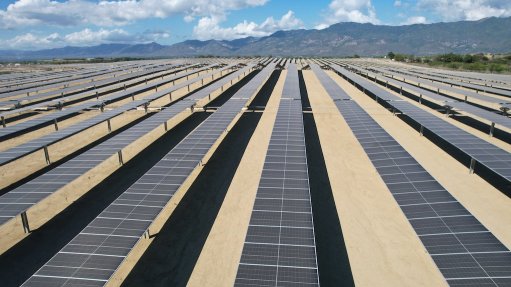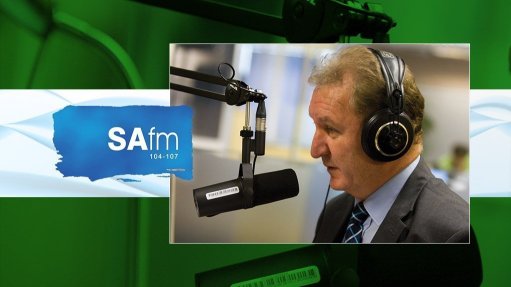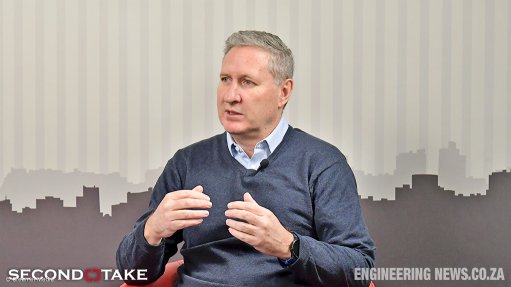Drones soaring in Rwanda
Drones, or remotely piloted aerial vehicles, are becoming the rising star of electronic innovation. They are being used increasingly in a variety of applications, ranging from construction to surveillance and agriculture, besides others. Worldwide, sales of such contraptions totalled $145-million in 2016, with this figure expected to increase nearly twofold next year.
As was previously reported on the pages of this magazine, while this technology is gaining elevation at considerable pace in many parts of the world, strict legislation is limiting its adoption in this country.
South Africa’s dilly-dallying contrasts with the stance taken by Rwanda, the small East African country better known for a 1994 genocide that claimed the lives of 800 000 to one-million people, mostly from the minority Tutsi ethnic grouping.
In October 2016, Rwanda became the first country globally to use drones to transport donor blood for transfusions to health facilities in outlying locations. The initiative is a partnership between the Rwandan government and Zipline, a US start-up that holds the distinction of being the world’s first commercial drone delivery service.
Since Zipline started operations in the East African country, its drones have distributed more than 7 000 units of blood to desperate patients, including mothers in maternity wards, slashing what would be three-hour delivery time along dirt roads to a matter of minutes. And the time of day and the state of the weather are no hindrances, as drone flights can be undertaken after dusk, when it is raining or even through high winds.
Owing to the short shelf life of blood used for transfusion purposes, keeping adequate stocks at health facilities at all times is not always possible. The drones have been able to get round this problem and also ensure that blood supplies can be whisked off to where they are required should there be an emergency.
As Zipline cofounder Keller Rianaudo remarked in a recent interview, Rwanda has demonstrated that it is possible for African countries – where, for the most part, infrastructure like roads leaves a lot to be desired – to leapfrog straight to newer and better delivery systems. In total, Zipline’s drones have covered 300 000 km in Rwanda’s southern and western provinces. Services from a central so-called ‘drone port’ to other parts of the country are under consideration.
It is a pity that Kenya, East Africa’s economic powerhouse, appears to be oblivious to the benefits that accrue from embracing drone technology. The country has enacted rigorous laws governing the drones industry, including a requirement to apply in writing to the Ministry of Defence for permission to fly drones, ostensibly for security reasons.
But Tanzania, which, like Kenya and Rwanda, is a member of the East African Community bloc, is following in Rwanda’s footsteps, with reports emerging towards the end of 2017 that Zipline would expand its operations into that country this year. The envisaged service in Tanzania, a much larger country than Rwanda but with similar road infrastructure challenges, will make 2 000 daily deliveries of blood products, medicines and snake antivenom to upwards of 1 000 hospitals catering for a ten-million-strong population.
Meanwhile, earlier this month, Zipline unveiled a newer drone model that can achieve a top speed of 128 km/h, which will enable the company to make up to 500 deliveries a day in Rwanda, a tenfold increase from 50 a day currently.
And in a move that is expected to attract more investors to Rwanda’s unmanned civil aircraft system industry, in January, President Paul Kagame’s government liberalised the country’s skies for commercial drones.
It may be a surprise to those who are not in the know to realise that, as far as delivery drones go, Rwanda has got one up not only on its bigger peers on the African continent but also on the US, the world’s biggest economy. According to the Federal Aviation Administration, the US will most likely not have delivery drone regulations until 2020. Big up to Rwanda’s Kagame.
Comments
Press Office
Announcements
What's On
Subscribe to improve your user experience...
Option 1 (equivalent of R125 a month):
Receive a weekly copy of Creamer Media's Engineering News & Mining Weekly magazine
(print copy for those in South Africa and e-magazine for those outside of South Africa)
Receive daily email newsletters
Access to full search results
Access archive of magazine back copies
Access to Projects in Progress
Access to ONE Research Report of your choice in PDF format
Option 2 (equivalent of R375 a month):
All benefits from Option 1
PLUS
Access to Creamer Media's Research Channel Africa for ALL Research Reports, in PDF format, on various industrial and mining sectors
including Electricity; Water; Energy Transition; Hydrogen; Roads, Rail and Ports; Coal; Gold; Platinum; Battery Metals; etc.
Already a subscriber?
Forgotten your password?
Receive weekly copy of Creamer Media's Engineering News & Mining Weekly magazine (print copy for those in South Africa and e-magazine for those outside of South Africa)
➕
Recieve daily email newsletters
➕
Access to full search results
➕
Access archive of magazine back copies
➕
Access to Projects in Progress
➕
Access to ONE Research Report of your choice in PDF format
RESEARCH CHANNEL AFRICA
R4500 (equivalent of R375 a month)
SUBSCRIBEAll benefits from Option 1
➕
Access to Creamer Media's Research Channel Africa for ALL Research Reports on various industrial and mining sectors, in PDF format, including on:
Electricity
➕
Water
➕
Energy Transition
➕
Hydrogen
➕
Roads, Rail and Ports
➕
Coal
➕
Gold
➕
Platinum
➕
Battery Metals
➕
etc.
Receive all benefits from Option 1 or Option 2 delivered to numerous people at your company
➕
Multiple User names and Passwords for simultaneous log-ins
➕
Intranet integration access to all in your organisation


















